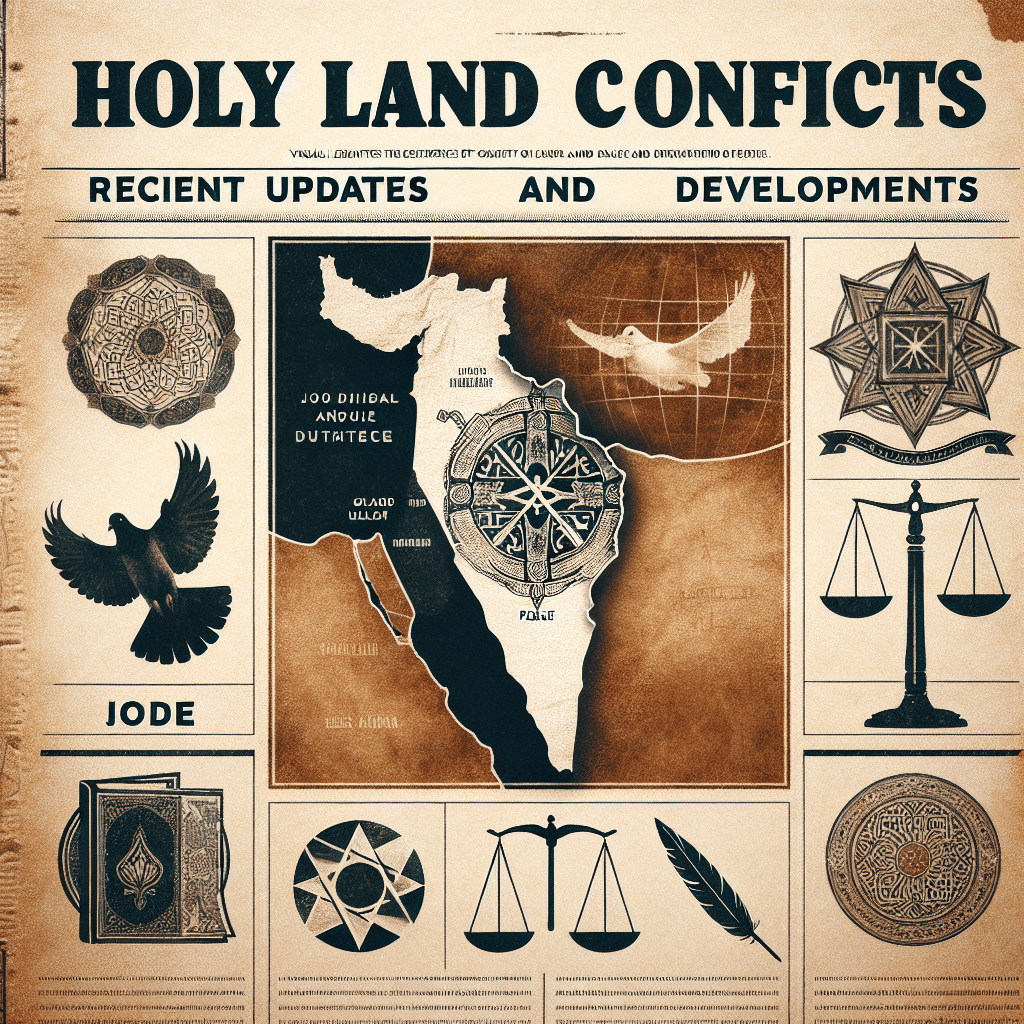The Holy Land, a region of significant religious importance to Christians, Muslims, and Jews alike, has been the site of ongoing conflicts and tensions for centuries. Recent developments in the region have intensified these tensions, leading to increased violence and instability.
One of the most pressing issues in the Holy Land is the ongoing conflict between Israel and Palestine. The two sides have been engaged in a bitter struggle for decades over issues such as land, borders, and the status of Jerusalem. Recent developments have only served to exacerbate these tensions, with both sides accusing the other of inciting violence and aggression.
One particularly contentious issue is the ongoing construction of Israeli settlements in the occupied West Bank. These settlements are considered illegal under international law and have been a major point of contention between Israel and the Palestinian Authority. The recent approval of hundreds of new settlement units in East Jerusalem has further inflamed tensions in the region and sparked violent clashes between Israeli security forces and Palestinian protesters.
Another major source of conflict in the Holy Land is the status of Jerusalem, which is considered a holy city by all three major monotheistic religions. The decision by former US President Donald Trump to recognize Jerusalem as the capital of Israel and move the US embassy there in 2017 was widely criticized by the international community and sparked protests and violence in the region.
In addition to the Israeli-Palestinian conflict, the Holy Land has also been a battleground for various terrorist groups, including Hamas and Islamic Jihad. These groups have carried out attacks on Israeli civilians and security forces, further escalating the violence in the region.
Recent developments in the Holy Land have also highlighted the role of regional and international actors in exacerbating the conflict. Countries such as Iran and Turkey have been accused of supporting militant groups in the region, while the United States and other Western powers have been criticized for their perceived bias towards Israel.
Despite the challenges and obstacles to peace in the Holy Land, there have been some recent developments that offer a glimmer of hope. The recent normalization agreements between Israel and several Arab states, such as the United Arab Emirates and Bahrain, are a positive step towards regional stability and cooperation. These agreements have the potential to create new opportunities for economic development and cooperation in the region.
Ultimately, resolving the conflicts in the Holy Land will require a concerted effort by all parties involved to work towards a peaceful and just solution. It will also require the support and engagement of the international community to help facilitate dialogue and negotiations between the conflicting parties.
As the situation in the Holy Land continues to evolve, it is crucial for all stakeholders to remain vigilant and engaged in efforts to promote peace, security, and stability in this sacred region. Only through sustained dialogue and cooperation can the Holy Land truly become a place of peace and harmony for all its inhabitants.

